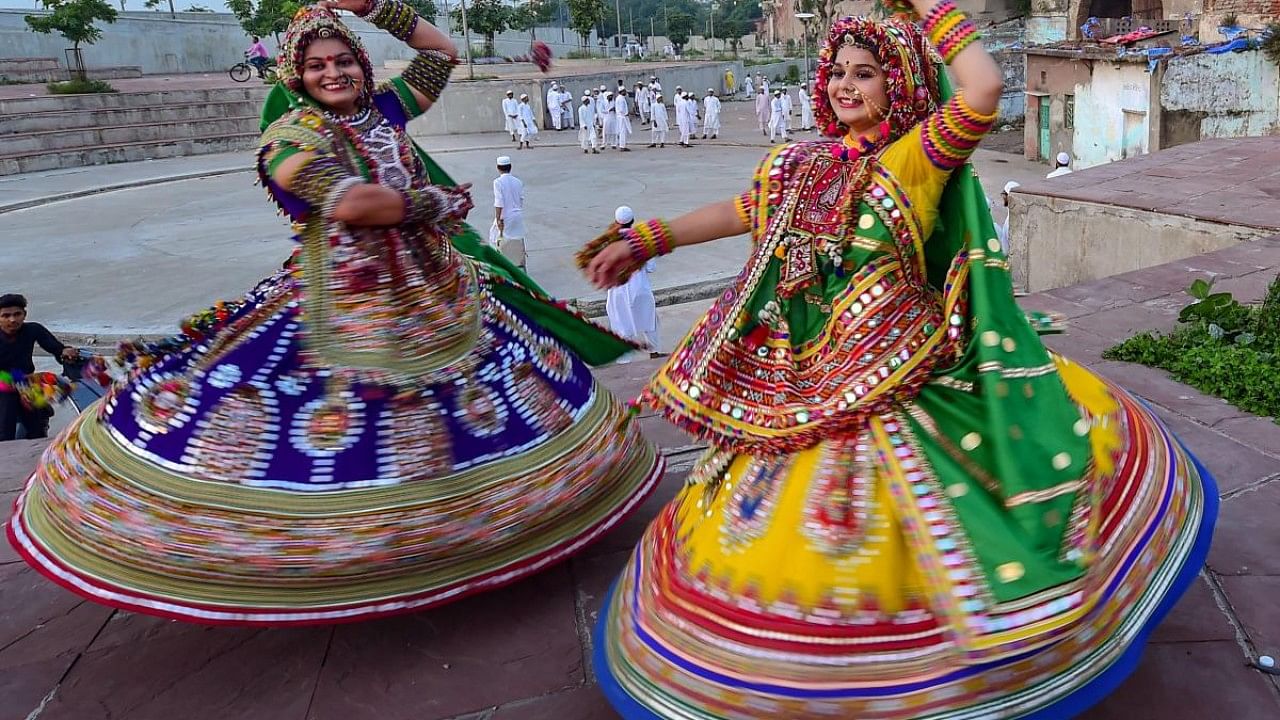
Gujarat's famed traditional dance form Garba has been nominated by India for inclusion in UNESCO's intangible cultural heritage list.
The latest nomination will be considered for the next year cycle, a top official said on Saturday.
Secretary of UNESCO's Intangible Cultural Heritage Tim Curtis shared details on it during a presentation made at an event held at the National Museum here to mark the UNESCO tag awarded to Kolkata's Durga Puja festival last December.
The Intergovernmental Committee of UNESCO's 2003 Convention on Safeguarding of the Intangible Cultural Heritage added Durga Puja in Kolkata to its Representative List of Intangible Cultural Heritage of Humanity last December.
"The latest nomination will be considered for the next year cycle. The nomination files will be examined by the evaluation body mid-2023 and the inscription will be decided at the 2023 session of the committee by the end of next year," Curtis had said.
One of his slides, which carried an image of Garba performers, and captioned 'Garba of Gujarat -- India's next element', mentioned that the "file was currently undergoing technical treatment by the Secretariat".
Curtis, during his address, praised India for its rich and diverse intangible cultural heritage, saying it has "a whole breadth and diversity in its intangible cultural heritage".
India currently has 14 Intangible Cultural Heritage (ICH) elements which are inscribed on this list, including Ramlila, Vedic Chants, Kumbh Mela and the latest being Kolkata's Durga Puja.
The country had received the honour of Kolkata's Durga Puja being inscribed on the coveted list at the committee's 16th session held at Paris, France.
The committee had commended Durga Puja for its initiatives to involve marginalised groups, and individuals as well as women in their participation in safeguarding the element.
Director and UNESCO Representative for the UNESCO New Delhi Office, Eric Falt, who was present at the event, said the recent inclusion of Durga Puja in UNESCO's Representative List of Intangible Cultural Heritage of Humanity, represents how all stakeholders came together.
"India perhaps offers more intangible cultural heritage practices than any other country in the world. And, many of them are in need of safeguarding. We at UNESCO work closely with the government of India in the preservation of monuments and the intangible cultural heritage, which many times tourists miss or are not much aware of," he said.